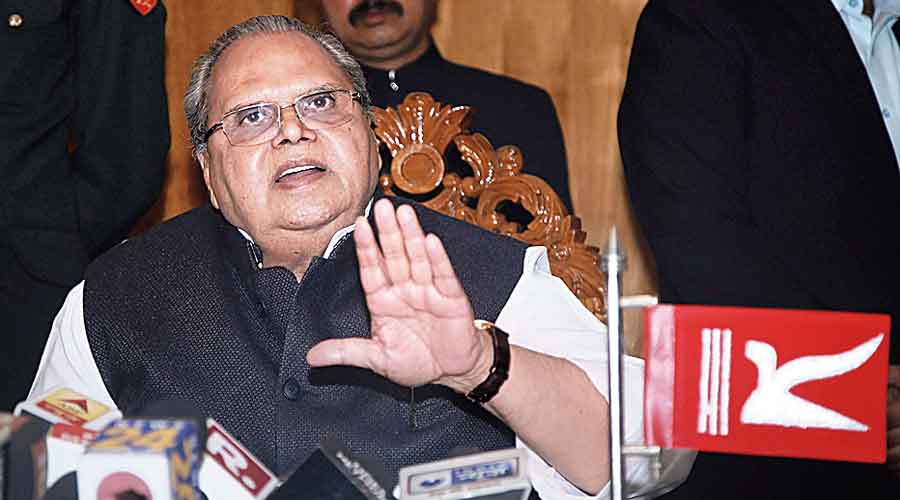Satyapal Malik, the Meghalaya governor handpicked by the Narendra Modi dispensation, has pitched for a law on the minimum support price and warned the Centre of consequences if the government tries to suppress the farmers’ protest and send them back empty-handed.
Malik’s voice holds significance as he belongs to the ruling stable and hails from western Uttar Pradesh, the epicentre of the farm protests along with Punjab and Haryana.
“When I saw what was happening in the matter of farmers, I couldn’t stop myself. I spoke and I told both the Prime Minister and home minister that ‘One, don’t send them back empty-handed because the sardars remember it for 300 years. Second, don’t use force against them’,” Malik told a felicitation at a school in Baghpat, western Uttar Pradesh, on Sunday. Malik had studied in the village school.
Malik, who joined the BJP in 2004 after stints in the socialist camp and the Congress, was picked as governor of the erstwhile state of Jammu and Kashmir in August 2018, a move indicative of his proximity to Modi and Shah.
It was during his stint as governor that the Centre decided to revoke the special status of Jammu and Kashmir. Later, he was transferred to Goa and then to Meghalaya.
Malik, who had spoken in favour of the protesting farmers earlier too, said he was “ready to go to any extent” for the farmers since he belonged to a farmer family and knew well the problems they faced.
Malik warned the Centre against committing the mistake of ignoring the farmers and echoed their demand for a law on the minimum support price, underscoring that “Kisan bahut bure haal me hai desh me”.
“Make a law on the MSP and the farmers will be ready for other amendments the government wants,” he said, urging the Centre not to allow the protest to drag on.
The governor said the government’s current approach towards the protesting farmers was “wrong”.
“This is a wrong approach, to suppress the farmers, insult and send them back,” he said and warned the government that the farmers were not going to leave by themselves and there would be consequences if they were forced out.
Malik said he had been trying hard to make the government understand the gravity of the farmers’ protest and resolve the issue.
“Yesterday, I met a very big journalist who is a friend of the Prime Minister. I told him that I had tried and now he should make them (the government) understand,” he said.
The governor recalled his days as a farmer’s son in the village and assured the villagers that although he lacked the power to force the government to act, he would spare no effort.
“I want to assure you that for farmers, I will go to any extent,” he said. “If the country’s farmers and soldiers are dissatisfied, the country can’t survive. Nobody can save the country.”










